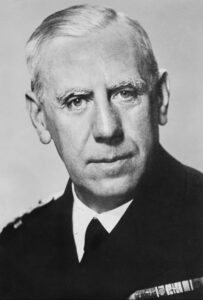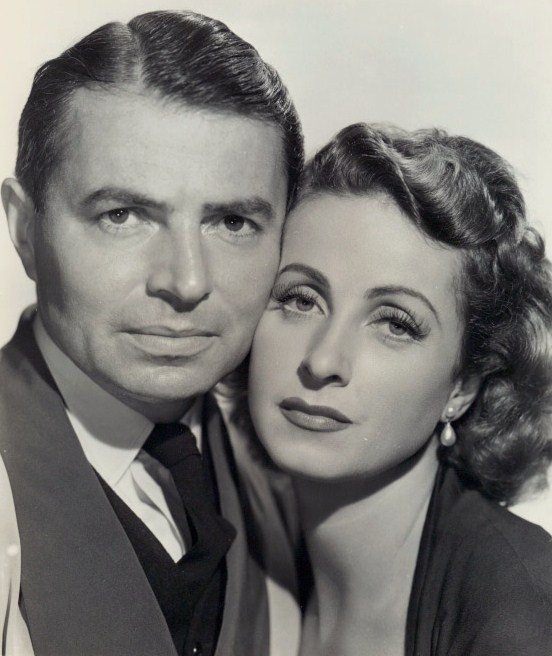And D-Day Betrayed?
Were the D-Day landings ‘Operation Neptune’ betrayed? The popular view is they were not. Rather more it is felt through the British ‘Double-Cross System’, through their double agents fed the Germans a huge amount of miss-information which they generally swallowed whole, some of these double agents even being awarded German medals.
The invasion came as no surprise, as both sides had been preparing for the event for years. From June 1940, when France fell and the British withdrew from Europe, preparations began immediately for their eventual return. Only days after the Dunkirk evacuation British forces conducted a small raid on the German occupied coast. This was the beginning of several ‘Commando’ raids to harass the Germans and compel them to stretch their forces in Europe. In 1941, Adolf Hitler, with his famous intuition, in a directive called ‘Construction of Coastal Defences’ expected the Allies to attempt landings on ‘the protruding points of Normandy and Brittany’ where good harbours ‘would make ideal beachheads.’ This was against the advice of his Generals, who expected the landings further north in the Pas de Calais area. It is unclear what happened to change the Fuhrer’s mind in barely two years. In March 1942 he appointed Field Marshal Gerd Von Rundstedt as commander in the west. In August Hitler ordered the construction of the Atlantic Wall to consist of 15,000 strongpoints, guarded by 300,000 troops, a huge undertaking that was never entirely completed. In November 1943, Von Rundstedt wrote about the Allied plans that; ‘Where he will come we do not know, neither do we know when he will come.’
However shortly after this the German spy code-named ‘Cicero’, the Albanian Elyesa Bazna working as the valet to the British ambassador in Ankara Turkey, photographed documents of the Tehran Conference between the Allied powers. These minutes of the meeting revealed the codename ‘Operation Overlord’ which he sold to the Germans. From this the Germans estimated the date for the landings as mid-may 1944. This was indeed, the original date, but it was later changed to June in the hope of marginally better weather conditions in the English Channel. Did the Cicero documents affect German Military decisions? Yes they did, but in the main they drew the wrong conclusions or did nothing, most obvious was in keeping large numbers of troops in the Balkans, when it was clear the Allies could not undertake two large operations at the same time, and that Turkey would not join the Allies. The failure of the British in the Aegean, ‘Operation Accolade’, while the Italian campaign was in its early stages demonstrated this weakness.

Hitler had scored an intelligence own goal by virtually disbanding the Abwehr, the German Secret Service in February 1944 after the Vermehren affair in Istanbul that he saw as the final straw. The Vermehren’s Erich and his wife Countess Elizabeth Plettenberg, devoted Catholics, defected to the British. He was a minor official in the Abwehr carrying out modest duties in Istanbul, including making reports on British shipping movements, although they had a high profile in German society. The British made much of the defection with propaganda. The incident caused consternation in Germany and it marked the virtual demise of the Abwehr as an effective service it was later taken over by the SD, the intelligence arm of the SS.
Hitler was furious and summoned Admiral Canaris head of the Abwehr to a meeting his last with the Fuhrer. Hitler told him his service was falling apart and full of traitors. The Admiral retorted it was not surprising as Germany was losing the war. Not what Hitler wanted to be told, shortly after he ordered the setting up a unified German intelligence service. The Abwehr Canaris had built up over many years fell apart, hundreds of officers and agents in important positions disappeared, deserted, resigned or applied for postings back to the armed forces, some would rather serve on the Russian front than under the SD.

However, not all those within British intelligence were so happy at the demise of the Abwehr. The Double Cross team were horrified as; ‘The Abwehr officers were the devils they knew.’ J.C.Masterman the creator of the Double-Cross System recognised the danger that the ‘new brooms would sweep away much which we had tried to preserve.’
At the start of the war the British Double-Cross, or XX, system started as an anti-espionage method run by MI5. From July 1940, the Abwehr launched a large scale espionage campaign against Britain however they were a pretty poorly trained bunch and, with the help of the Ultra decrypts, MI5 had no trouble picking up the spies. Masterman said that by 1941, MI5; ‘actively ran and controlled the German espionage system in Britain.’ Of twenty-five German agents sent to Britain in the latter half of 1940, all but one were caught, five were executed, fifteen imprisoned and four became double agents, the lone evader later shot himself.
The XX System was also used outside Britain. In particular, agents were run in Spain and Portugal and some had direct contact with the Germans. Perhaps the most famous agent of the Double-Cross system was codenamed ‘Garbo’ by the British and ‘Arabel’ by the Germans who even went as far as awarding him the Iron Cross 2nd Class. There was some debate within German circles that a foreign national should be awarded the medal. It went as far as Hitler himself who approved the award of the medal.
Juan Pujol Garcia was from the Catalan region of Spain and during the Spanish Civil War, he developed a loathing for the Fascists. During the early part of the Second World War, he contacted both the British and American intelligence services with an offer to work for them, but was initially rejected. Undeterred, he created a pro-Nazi identity and became a German agent. He was instructed to travel to Britain and recruit agents, and he began to invent fictional agents and send in reports based on tourist guides of Britain. After an approach to the US Navy attaché in Lisbon, Lieutenant Patrick Demorest called in his British counterparts; at last Garcia was taken seriously and, in a few months, was in England. After a thorough MI5 debriefing to make sure he was genuine, finally the British accepted Garbo. Like Cicero, he was termed a ‘walk-in’, however motivated by hatred for the Fascists, whereas Cicero was motivated by financial reward. Garbo was unique among double agents, in having set out to be so.
Walter Schellenberg head of the SD took over the Abwehr incorporating it into the SD, fortunately, for the Allies; he only managed to create an inefficient muddle at a crucial time for Germany. The Abwehr had not been such a bad organisation; it had managed to sustain surveillance in the United States and Britain to a fairly high degree under difficult conditions. It also obtained reliable information and enabled the German High Command to follow the growing Anglo-American strategic concept of the invasion, from its birth in 1942 to the arrival of the Allies in Normandy in 1944. By the time of D-Day, German intelligence was still in a poor state and, on 4 June the German High Command was reportedly ‘groping completely in the dark.’ General Walter Warlimont, deputy to German Chief of Staff General Alfred Jodl, wrote in his memoirs that German Supreme Headquarters, the day before the invasion; ‘had not the slightest idea that the decisive event of the war was upon them.’ Yet there was a warning about the impending invasion the source the Abwehr, as early as January 1944. Admiral Canaris had discovered the text of a two-part radio message to be transmitted from England shortly before the invasion as a standby signal to the French Resistance. Nobody at the time seems to have paid the slightest attention to these reports. The first had come to the Abwehr in October 1943, the second to the RSHA, Supreme State Security department on 2 June 1944 and the third on 4 June to the RSHA. But with no Canaris, now virtually under open arrest, and the Abwehr in tatters, no one realised the importance of this information, nor did it fit their preconceptions.
This Allied leakage was due to the collapse of SOE/Resistance cells in France. In July 1943 ‘C’ Sir Stewart Menzies head of MI6 had learnt the resistance networks in France ‘might be a danger to the security of Overlord.’ The Paris network was one of the biggest: led by Major Francis Suttill and code-named ‘Prosper’, it had the task of preparing the French resistance for the invasion. The group was compromised in June 1943; Suttill was arrested and tortured, but although he was aware of the ‘alert’ signal it was unlikely he revealed it. He was later executed by firing squad at Sachsenhausen Concentration Camp. It was estimated between 400 -1,500 people were arrested on the collapse of ‘Prosper’, and, no doubt someone did reveal the ‘alert’, due to an oversight on the Allied side the ‘alert’ was not cancelled or changed.
The Abwehr had also penetrated other groups in France and Holland but the disruption of that service relegated much of its work and good material to gather dust in files, while the German High Command chose to listen to Garbo. At 1 a.m on 6 June, ‘Arabel’ radioed his Abwehr controller, Karl Erich Kuhlenthal, who had not been lost in the reshuffle that Allied forces had embarked for Normandy. The message was too late to assist the defenders, but, as it was designed to do aid the deception by enhancing his reputation with the Germans as their super spy. Then on 9 June, he sent another message requesting it be sent to the High Command urgently. ‘The present operation thought a large scale assault is diversionary in character’ This reinforced Hitler’s belief there would be another landing in the Pas de Calais, and the message arrived in time for Hitler to cancel the movement of 1st SS Panzer and 116th Panzer Divisions to Normandy.
Via Madrid on 29 July ‘Radio Arabel’ (Gardo) learnt he had been awarded the Iron Cross 2nd Class. The double agent Eddie Chapman run by the British as Agent ZigZag was also awarded the Iron Cross. He was physically awarded his medal by the Germans, in a small leather case by his handler while he was in France; the ribbon was red, white, and black. First awarded in the Napoleonic Wars in 1813 to Prussian Troops, it was revived in the First World War. Hitler was awarded an Iron Cross in 1914. In the Second World War it became widely used by the Nazi’s, reintroduced in 1939 with a Swastika added to the centre and divided into three main sections, Iron Cross 2nd Class, 1st Class, and Grand Cross of the Iron Cross. A higher award the Knight’s Cross of the Iron Cross was also introduced again with sections going up to the gold Knight’s Cross. Chapman was astonished to receive his thinking to himself; ‘If I stay with this mob long enough I might end up a Reichsmarschall….’
Yet Cicero was paid via the Nazi counterfeiting scheme ‘Operation Bernhard’ with worthless money. Although he was promised a villa once the war was over. After the war he tried to sue the German Government for money owed to no avail.

At a military conference in December 1943, Hitler commented about the Cicero documents that; ‘I have mostly studied through these documents. There is absolutely no doubt that the attack in the west is coming in the spring.’ He outlined possible deceptions the Allies might try in Norway, the Bordeaux area in France, and the Balkans. He also pointed out telegram No 1751 from the British Foreign Office to the Ankara Embassy an ‘immediate’ signal bearing the highest Security rating ‘Most Secret’, and the code word ‘Bigot’ added gave restricted access to only a few people. In it was the text of a message from the British Chiefs of Staff to US General Eisenhower, indicating their aim ‘to get Turkey into the war’ and to ‘maintain a threat to the Germans until Overlord is landed.’ Certainly ‘threat’ here meant a deception or scare tactic. Yet the conclusion must be that Hitler never really believed the Cicero documents because by and large, they told him what he did not want to hear. He ignored the good information about the Balkans and committed twenty-five German divisions there including two Panzer Divisions. They were held there away from the main fronts east or west, facing only small-scale raids by bands of partisans and British Commandos.
A young woman brought Cicero’s brief career (October 1943-March 1944) to an end. She was German, but an American controlled agent working at the German Embassy in Ankara. She obtained his code name and discovered he worked at the British Embassy. He fled and narrowly avoided being captured by the tipped-off British.
In a report, MI6 identified this as the crucial point; ‘….through the leakage, the Germans became aware that there was no genuine threat of an Allied move in the Balkans.’ Jodl’s diary also confirmed the information had reached the German High Command. In conclusion, the MI6 report states ‘….perhaps Cicero earned all the money the Germans paid him.’

James Mason who played Cicero in the film Five Fingers based loosely on the real events Danielle Darrieux played the fictional love interest
